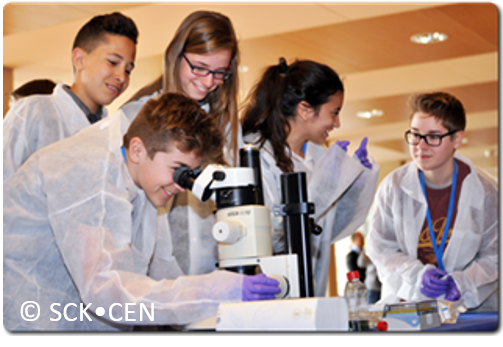Hybrid Model Development in (Bio)Chemical Heterogeneous Population Systems

Category
Ph D Defense
Date
2025-09-30 17:00
Venue
KU Leuven, Aula Rosalind Franklin, 01.01 - Celestijnenlaan 200H
3001 Leuven, België
3001 Leuven, België
Promovendus/a: Michiel Busschaert
Promotor(en): Prof. dr. ir. Florence Vermeire, Prof.dr.ing. Steffen Waldherr
Mathematical models of physical systems have become an indispensable aspect of modern engineering. They enable the development and testing of new designs, improve existing designs, and more. Particularly they offload time and resources that would need to be spent on real experiments. Historically these models evolved alongside developments in mathematics, in an attempt to describe physical observations. With the introduction and surging of computational resources, physical systems could be described and solved to much greater level of detail. However, some systems have been shown to be inherently nearly impossible to accurately predict, such as turbulent flow [Steven Strogatz, Nonlinear Dynamics and Control, 2015], even though the underlying mechanisms are well known. In addition, the popularization of machine learning techniques introduces models that describe complex systems, without understanding the driving principles. This highlights two different perspectives in modeling: a knowledge-driven versus a data-driven approach.In this dissertation, a special type of system is modeled, where there is a collection (population) of many smaller particles (individuals), with a so-called Population Balance Model (PBM). For example, several biotechnological processes use small cells that act together as numerous mini-factories, taking up certain materials and producing desired chemicals. Other examples exist too, such as the formation of crystals used in production of, e.g., aspirin. This dissertation investigates different approaches to model such systems consisting of a population. Both knowledge-driven and data-driven techniques are considered, as well as a combination of both. One technique from systems biology is used based on the knowledge of the metabolic behavior of a cell, called Flux Balance Analysis (FBA). Another technique with data-driven aspects is used, which has its origins in machine learning, Gaussian Process Regression (GPR). The dissertation is set up to focus on the shared principles of modeling population-based systems, but uses specific examples to illustrate methodology. One case study revolves around pharmaceutical crystallization, the other case study around biological cell cultivation.
All Dates
- 2025-09-30 17:00
Powered by iCagenda






